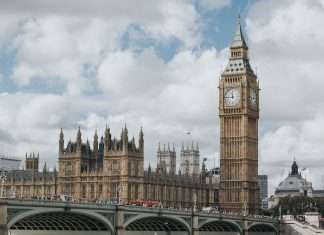The Bank of England (BofE) has kicked off its Climate Biennial Exploratory Scenario (CBES) to scrutinise the risks that could be incurred from climate change.
According to the BofE, the CBES uses three scenarios of early, late and no additional action to explore two key risks from climate change. The first considers the risks arising from the substantial economic changes need to reach net-zero emissions, while the second examines the risks associated with higher global temperatures.
The bank said this is the first time it was testing both banks and insurers to enable it to capture interactions between them and understand the risks presented by climate change across the financial system.
One of the first objectives of the CBES tests includes sizing the financial exposure of individual firms and the financial system as a whole to their end balance sheets from 2020 – this, the BofE claims, will ‘shine a light on risks that are currently opaque’. The tests will also seek to understand business model challenges and likely responses to such risks, a move the bank said will highlight where the action is needed and implications for financial services provision.
The final objective of the CBES test is to improve companies’ risk management and prompt a ‘strategic view’ that will involve building capability amongst participants and within the banks. The bank added this objective will embolden participants to engage their biggest counterparts to understand their climate change vulnerability.
The CBES will also involve a qualitative questionnaire that will aim to capture participants’ own views of their risks, their climate risk management approach and their potential management actions. The final feature includes a detailed counterparty-level analysis for the largest counterparties, which will ask companies to use novel modelling approaches to conduct a bottom-up analysis of their largest counterparties.
The BofE noted that the CBES is only an explanatory exercise and will be not used by the bank to set capital requirements.
The bank expects to publish the results from the tests in May 2022.
Bank of England Governor Andrew Bailey said, “Today’s exercise will help us size the risks from climate change for both the largest banks and insurers as well as the financial system as a whole. It’s a novel exercise as firms will have to engage closely with their counterparties in order to get detailed data on those counterparties’ exposures to these risks.
“It will stretch the time horizon over which the banks and insurers assess these risks and it will require them to build up their own scenario analysis capabilities, helping them to understand better how they are exposed under different potential climate pathways. The end result will be more robust management of climate-related financial risks across the sector.”
BofE climate change executive sponsor Sarah Breeden added that the climate scenarios will provide central banks and supervisors around the world with a common starting point for analysing climate risks under different future pathways.
She continued that climate scenario analysis was a critical part of the bank’s toolkit to address future climate uncertainty and offered potential scenarios for the most efficient pathway to net-zero, while others highlight the risks of late or insufficient action.
Copyright © 2021 FinTech Global











